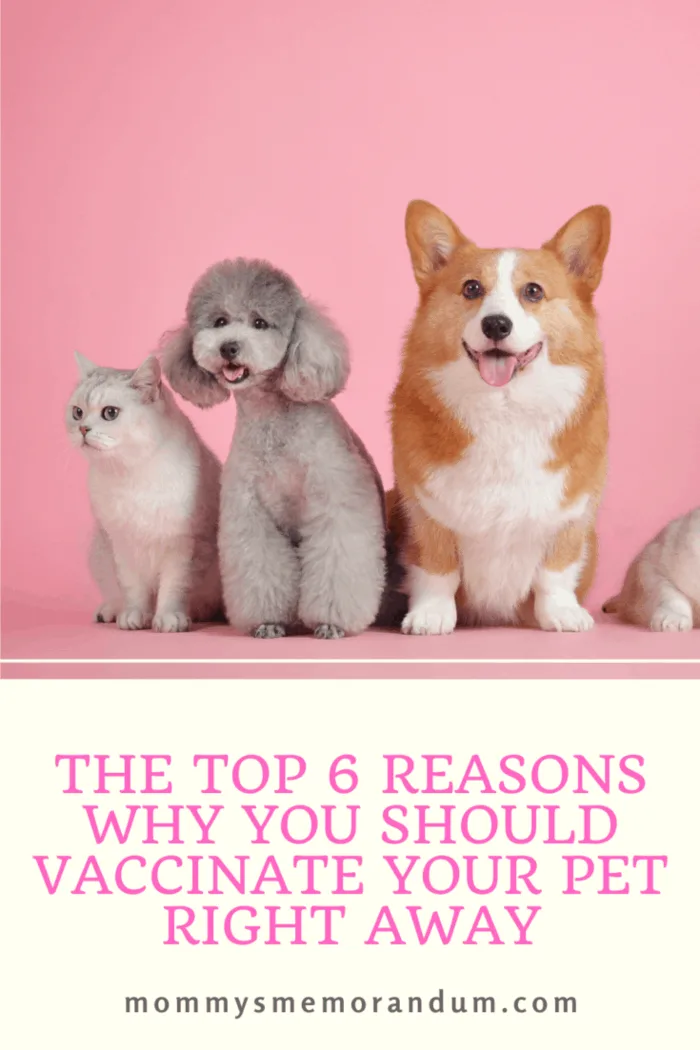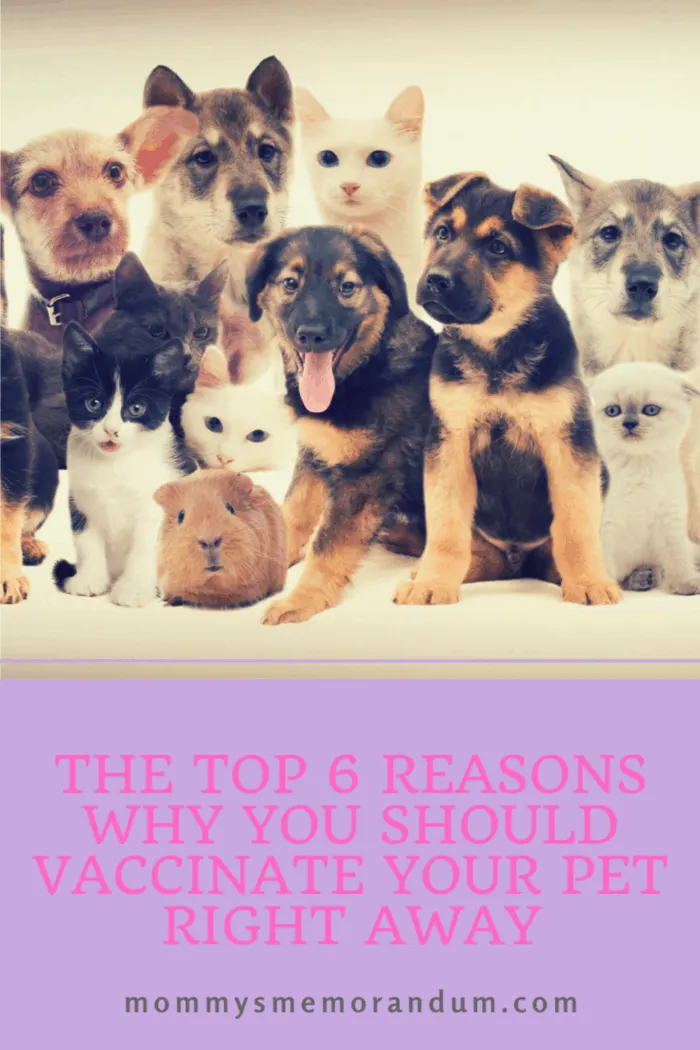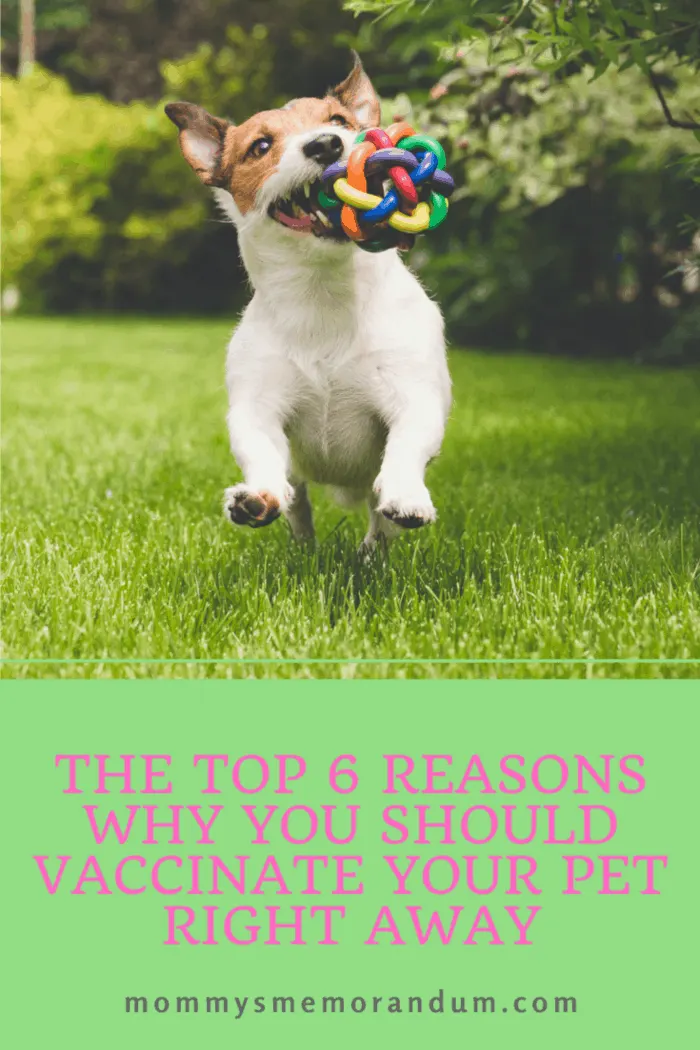You should vaccinate your pet right away, as soon as you get them; this protects you and them. Now that you brought your furry friend home, wouldn’t you do anything to protect them? Do you know that vaccinating them should be one of your top priorities? As a pet owner, you are responsible for your pets’ health and wellness, and vaccinating them will significantly protect them from illnesses. Whether you got a dog or a cat, vaccinating them is crucial to maintaining their safety and that of your family. Let’s look at some of the reasons why you should vaccinate your pets.

The Importance of Pet Vaccines
The necessity of pet vaccinations highly depends on certain factors such as your pets’ age, lifestyle, and medical history.
Some pets need to get vaccinated at least once a year, while others need to receive vaccines every three years.
Keeping the vaccinations up to date is imperative for a healthy pet, so an annual veterinarian appointment is highly recommended.
Now that you have a puppy or a kitten, you need to have them examined by the vet as soon as possible.
The veterinarian will look at your pet’s medical history to see whether they were recently vaccinated and whether it was done right.
Reasons Why You Should Vaccinate Your Pet
You should vaccinate your pet and keep a vaccination schedule for several reasons.
Let’s take a look at six of those reasons.
1. It Protects Your Pets
This is the most important reason you should vaccinate your pets.
If, by any chance, your pet contracts a life-threatening disease and they are not vaccinated against it, you could lose them.
Failure to vaccinate them puts their lives in danger.
Puppies and kittens usually have lower immunity, which makes them vulnerable to infections and diseases.
Without proper vaccinations, your pets will be putting other pets and people in danger of potentially life-threatening diseases.
Besides, prevention is always better than cure, and some of these diseases are quite hard to treat, if not incurable.
With timely vaccinations, however, your pets will pass this precarious age without any problems.
Once they get old, they also start to lose their natural immunity, which means that vaccinations and boosters will be critical in their old age.

2. Law requires it
It is mandatory for your pet to be vaccinated against rabies in most states.
You may be liable to a fine if you fail to meet the rules and don’t vaccinate your pet.
3. It Safeguards the Health of Your Family
You and your family members stand a risk of contracting viruses from your pets if not vaccinated.
Zoonotic diseases such as leptospirosis and rabies can be spread directly to humans, with children being more susceptible.
The best protection against such diseases is to have your pets vaccinated.
4. It’s a Boarding Facility Requirement
If you think it may get to a point where you need your pet to stay at a boarding facility, then you should know they’ll ask you for your pet’s vaccine paperwork.
Before any facility accepts your pets, they need an updated vaccine report.

5. It Is Cost-Effective
Unlike what you may think, pet vaccinations are relatively affordable and easy to obtain.
If you consider the costs of treating most pet diseases and the long time they’ll have to spend in quarantine, then vaccinating them is well worth it.
Other tips for cost-effective dog care can be done by making their food at home.
6. The Benefits Outweigh the Risks
You need to understand that the benefits of vaccinating your pets far outweigh the risks of any side effects you could be worried about.
Will Vaccinations Truly Protect Your Pets?
Vaccinations are effective when it comes to preventing diseases.
If not complete prevention, then they decrease the severity of the clinical signals.
You must follow the puppy vaccination schedule to reduce any gaps in protection.
Why Do They Need a Series of Vaccines?
Very young puppies and kittens have a low immunity system and are susceptible to infectious illnesses.
They usually get protection from the antibodies in the mother’s milk.
This protection, however, does not last long enough, and their immunity may weaken as they mature.
Most of the time, the first dose of vaccines strengthens the pet’s immune system, while subsequent vaccines stimulate the immune system further.
This way, they can produce enough antibodies to protect themselves in the long run.
What Are the Side Effects Involved?
All types of medications come with side effects.
Most pets respond very well to vaccines, especially when they are healthy.
Adverse effects are rare, and some side effects you can expect are mild and short-term.
Some of the mild side effects you may experience include mild fever, discomfort or swelling at the vaccination area, decreased activity and appetite, or sneezing.
Some of the serious side effects may include diarrhea, persistent vomiting, itchy skin, or swelling around the face.
Which Vaccinations Do Your Pets Need?
In general, there are core and non-core vaccines.
Core vaccines protect pets from the most common diseases, while non-core vaccines are for individual pets, depending on their needs.
Non-core vaccinations depend on lifestyle, travel, and possible contact with wild animals.

How Often Will They Need to Be Vaccinated?
Your veterinarian should determine the best vaccination schedule for your pet.
Most vaccines provide adequate protection when administered every few years, but others may require frequent schedules to maintain the pet’s immunity.
Boost Your Pet’s Immunity With Vaccinations
You need to understand that most pet diseases are preventable as long as you have your pets vaccinated.
With vaccinated pets, you’ll have peace of mind knowing that they are safe, you are safe, and the whole family’s safety.
So, if you’ve wondered, should I vaccinate my dog?
The answer is yes.
If you want to know more about why you should vaccinate your pets, you can call your vet and have an open conversation.
Was this information useful? Please check out our blog for more!
